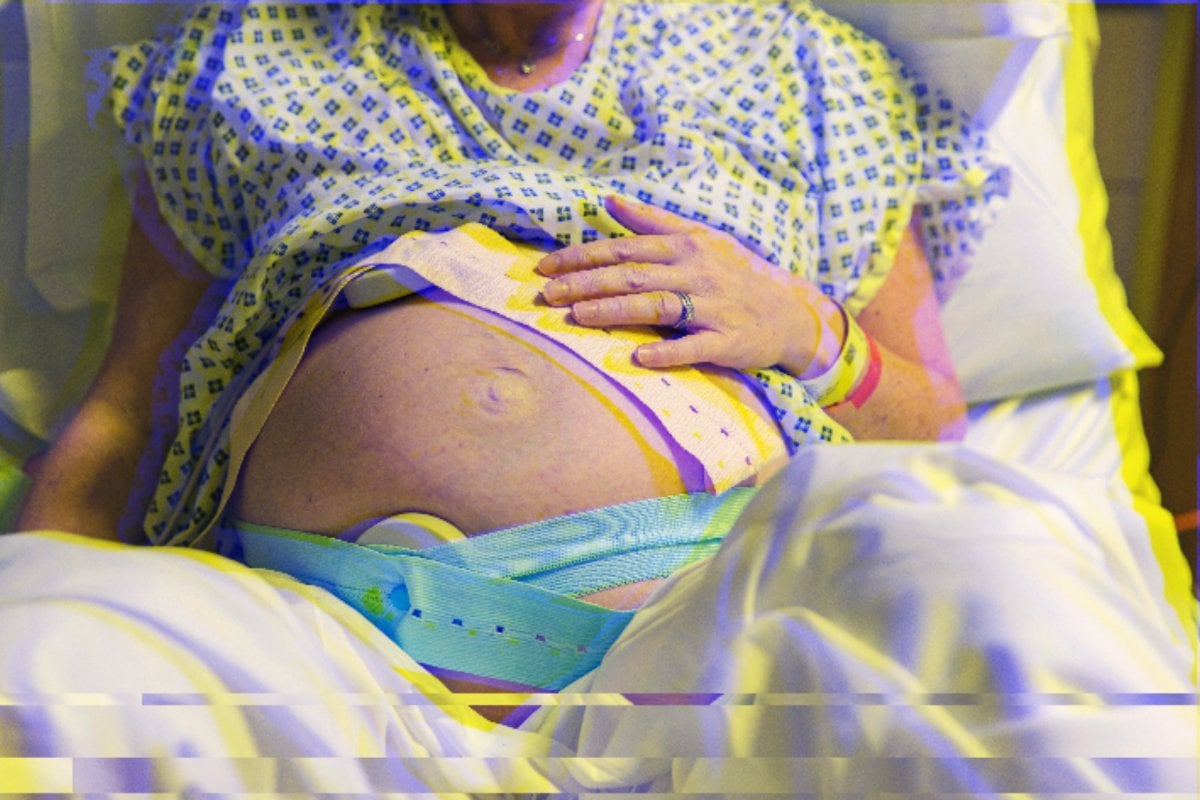
Content warning: This story includes detailed depictions of birth trauma, and discussions of suicide that may be distressing to some readers.
Three years ago, Charlotte* was getting ready to give birth. She wasn't feeling too nervous or worried; she knew what to expect as she had done it before, previously undergoing two C-sections with her older children.
So when she was given the anaesthesia, she knew immediately it hadn't worked. It didn't feel the same as her first two experiences. In fact, it felt like it was barely working at all.
"During the C-section, I felt everything - I told the doctor to stop, that I could feel her cut me and she just said it was 'pressure not pain' and continued to cut while I cried in pain," Charlotte told Mamamia.
After the birth, Charlotte was in serious pain but healthcare providers thought she was "drug seeking". It's been a few years since she the birth but the impact has been long-lasting. Charlotte still has flashbacks to that moment and is seeing a therapist.
Rachel* also endured a traumatic birth. Earlier this year, she was coerced into having an induction - despite her feeling like there was no concern for either the mother or baby's health.
"I had a stranger digging up around my cervix with no meds and it brought on a rapid dilation. My water had already broken, but the staff kept telling me I had just wet myself. I certainly had not," Rachel told Mamamia.




























































































